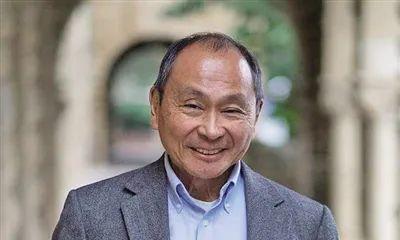01
Questions to keep thinking about

Francis Fukuyama is a professor of political science at Stanford University.
Francis Fukuyama: The issue that I've been focusing on and thinking about in recent years is the governance challenge in the United States and around the world. I am particularly interested in the politics of climate change, and I am interested in how national political institutions will adapt to and deal with the dilemmas that climate change brings.
Sun Ge: Some of the academic topics that I am concerned about in the field of the history of Japanese political thought are not necessarily suitable for discussion here. However, there is a concern that is both doctrinal and practical: how can a society cultivate and accumulate quality "formal sensations"? I think that our social life lacks meaningful formal factors, but is full of all kinds of pseudo-forms. It is common to understand form as something empty, or a tool for modeling content; form can use content as an opportunity to obtain meaning, which is not accepted by most people. As a result, our culture becomes more directly on topic, and it is difficult to effectively provide a rich sensibility of life.
Many people are dissatisfied with the current state of social life because interpersonal relationships, no matter how far away, no matter how big or small, are very quick to make a profit. As material life improves, people with conscience will be disturbed by the prevailing utilitarianism and fetishism. Whether it is literature or art or the style of life, behind many forms of social prevalence, most of the hidden is the naked utilitarian purpose. Cultivating formal feelings does not directly solve these problems, but it can help us understand the contours of the problem.
Sun Ge is a researcher at the Institute of Literature, Chinese Academy of Social Sciences.
02
Books to watch
Francis Fukuyama: The noteworthy book I noticed in 2021 is not an academic book, but a science fiction novel: Neil Stephenson's The End of the Shock. In my opinion, science fiction is one of the best vehicles for predicting the future.
The book Stop the Shock looks at global warming. Its story is set like this: Decades later, temperatures around the world have risen so catastrophically that outdoor walks in Texas require wearing a special cooling suit to prevent overheating. The story revolves around the context of humanity's response to climate change by engineering the planet. One of the protagonists of the story is a billionaire in Texas. He built a series of cannons that could propel sulfur into the upper atmosphere, where it would turn into sulfur dioxide, which has proven to be very effective at reflecting solar energy back into outer space. It has therefore been suggested that the Earth could be cooled by dispersing this gas in large quantities in the Earth's atmosphere.
The interesting thing about this novel is the geopolitics of the world at that time. The geodesy project has been widely criticized around the world for its unintended consequences. And the consequences can be worse than the environmental problems engineers are trying to solve. The efforts of Texas billionaires have led to atmospheric cooling that have had very different effects in different parts of the world.
On the one hand, low-lying countries such as Venice or the Netherlands are positively affected by falling temperatures; on the other hand, the cooling climate interferes with India's monsoon, which in turn threatens the livelihoods of hundreds of millions of people there. India sent an agent to try to stop the Texas billionaire from changing the climate.
I think the interesting thing about this book is that in the futuristic world depicted in the book, the actions of a super-rich person directly affect the lives of billions of people around the world, which has never happened before. It also suggests that global responses and attitudes towards climate change are not necessarily peace and cooperation, and could trigger significant geopolitical backlash as a result.
The author, Neal Stephenson, was one of the first writers to conceive of a world dominated by electronic networking activity in the 1980s and 1990s, the so-called cyberpunk science fiction. He is also the inventor of the concept of the "metacosm", a virtual world in which people can interact through avatars. The term "metaverse" has now been appropriated by Facebook, which hopes to build a new online empire in this way by renaming itself "Meta." Stephenson successfully predicted that online communication would change the world. And in Stop The Shock, he goes on to paint a fascinating vision of the impact of the future of technology on political and social life.
Sun Ge: Out of concern for the previous question, I prefer a small book this year that has aroused some heated discussion: Guo Baochang and Tao Qingmei's "Great Games: What is so good about Peking Opera". This book has inspired me so much that I feel that some thoughts about form can land, open up, and translate into broader discussions. It is of course very necessary to see it as a book on Peking Opera and traditional culture, but I think its most important function is outside of Peking Opera, which raises the question of how to understand the meaning of form. In that sense, it didn't get the discussion it deserved.
"The Great Game", by Guo Baochang and Tao Qingmei, Edition: Life, Reading, Xinzhi Sanlian Bookstore, August 2021.
03
Looking forward to the original work
Sun Ge: The general trend of commercialization in the publishing industry will make it more and more difficult to produce original works. However, I believe that there are still people who are willing to sink their hearts and think about the problem. I look forward to works in which principles are discussed in concrete empirical questions, to works that have theoretical imagination but are not fanciful. No matter what field they are produced in, it will be exciting.